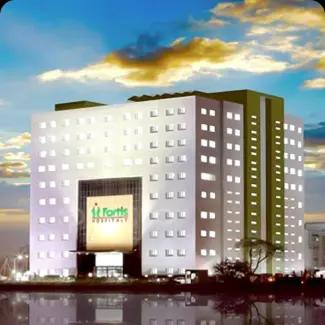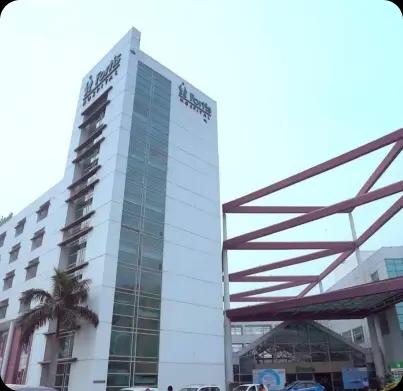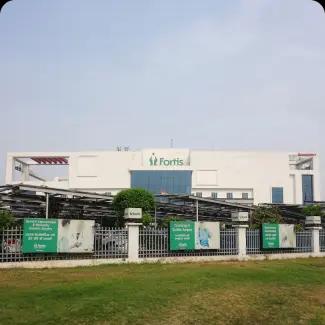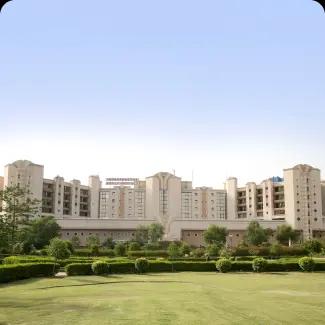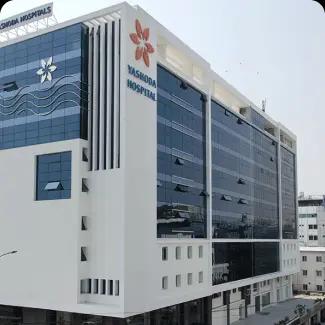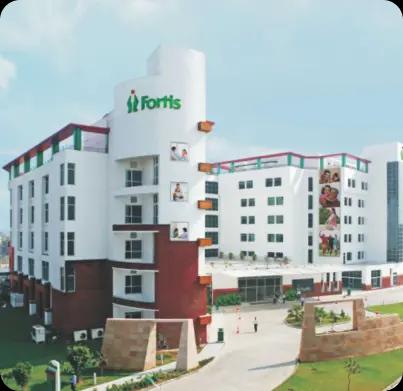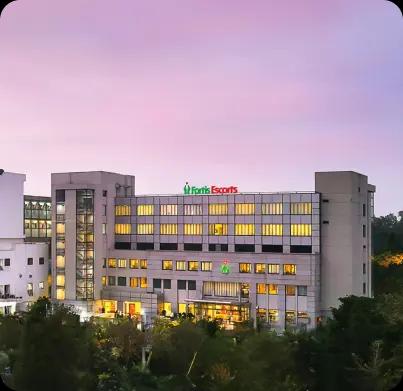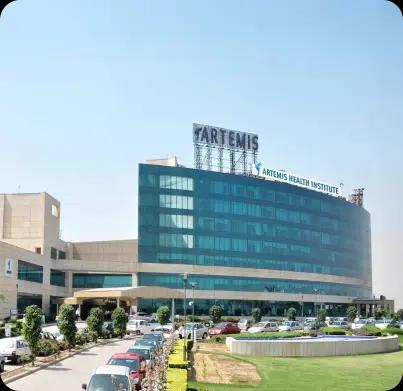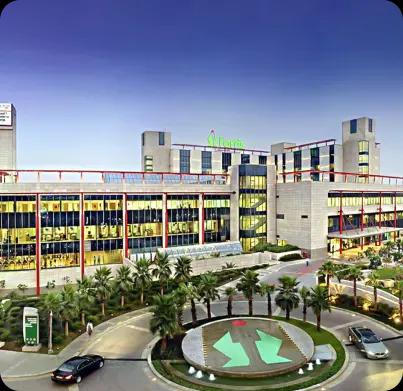
Pyeloplasty
Pyeloplasty is a surgical procedure to fix a blockage or narrowing where the kidney connects to the ureter. It restores normal urine flow by repairing or removing the obstructed part of the ureter and joining the healthy sections. It can be done through open surgery, laparoscopy, or robotic assistance. After surgery, patients typically experience relief from symptoms like flank pain and urinary infections. Recovery times vary, but most can resume normal activities within a few weeks.
Easy Medical Visa Approvals
Travel Booking Assistance
Comprehensive Treatment Plans
Multi-Language Support
Pyeloplasty is a surgical procedure to fix a blockage or narrowing where the kidney connects to the ureter. It restores normal urine flow by repairing or removing the obstructed part of the ureter and joining the healthy sections. It can be done through open surgery, laparoscopy, or robotic assistance. After surgery, patients typically experience relief from symptoms like flank pain and urinary infections. Recovery times vary, but most can resume normal activities within a few weeks.
Symptoms Indicating a Need for Pyeloplasty
Symptoms
Types of conditions
There are five main types of Pyeloplasty
Pyeloplasty
Endoscopic Retrograde Pyeloplasty (ERCP)
Laparoscopic Pyeloplasty
Robotic-Assisted Pyeloplasty
Observation
Pyeloplasty
Surgical procedure to correct the blockage or narrowing of the ureteropelvic junction.
Symptoms Indicating a Need for Pyeloplasty
- Persistent or Intermittent Pain: Pain in the back or side (flank pain) that can be dull, sharp, or radiating. The pain might worsen with fluid intake.
- Urinary Tract Infections (UTIs): Frequent infections, which might include symptoms like burning during urination, urgency, cloudy or foul-smelling urine, and fever.
- Nausea and Vomiting: Especially when accompanied by other symptoms of UPJ obstruction.
- Blood in Urine: Visibly bloody (hematuria) or microscopic blood in the urine can be a sign.
- Poor Growth or Feeding Issues in Infants: In babies, the condition might be suspected if they have poor weight gain, vomiting, or feeding difficulties.
Types of condition
- Urinary Tract Infection (UTI): Bacterial infection affecting any part of the urinary tract, commonly causing frequent urination, pain, and burning sensations during urination.
- Kidney Stones (Renal Calculi): Hard deposits of minerals and salts that form in the kidneys, leading to severe pain in the abdomen, groin, or back, and may cause blood in urine.
- Ureteropelvic Junction Obstruction (UPJ Obstruction): Narrowing or blockage at the junction where the ureter connects to the kidney, causing flank pain, urinary tract infections, and kidney swelling.
- Bladder Cancer: Abnormal growth of cells in the bladder lining, often leading to blood in urine, frequent urination, and pelvic pain.
- Chronic Kidney Disease (CKD): Progressive loss of kidney function over time, characterized by symptoms like fatigue, swelling in the legs, and changes in urine output and appearance.
Diagnosis
- Urinalysis: Examination of a urine sample to detect abnormalities such as blood, protein, bacteria, or abnormal cells, providing clues to various urinary tract conditions.
- Imaging Studies: Techniques such as ultrasound, CT scan, or MRI can visualize the urinary tract, helping to identify kidney stones, tumors, or structural abnormalities. - Cystoscopy: A procedure using a thin, flexible tube with a camera (cystoscope) inserted into the urethra and bladder to directly visualize the interior of the bladder and urethra for signs of abnormalities or cancer.
- Urodynamic Testing: Assessing bladder and urethral function through various tests, such as uroflowmetry, cystometry, and pressure-flow studies, to diagnose conditions like urinary incontinence or bladder dysfunction.
- Blood Tests: Blood tests, including serum creatinine, blood urea nitrogen (BUN), and electrolyte levels, can assess kidney function and identify abnormalities associated with kidney diseases or urinary tract infections.
Causes/ Risk Factors
- Infection: Bacterial or viral infections can lead to urinary system conditions.
- Kidney Stones: Various factors like diet and dehydration contribute to stone formation.
- Structural Abnormalities: Congenital defects or structural issues in the urinary tract increase risk.
- Age, Gender, and Chronic Conditions: Older adults, females, and those with chronic diseases are at higher risk.
- Family History: Genetic predisposition can increase susceptibility to urinary system disorders.
Preparing for surgery
- Medical Evaluation: Get assessed for overall health and any conditions that could affect surgery.
- Surgeon Consultation: Discuss procedure details, risks, and expectations with your surgeon.
- Preoperative Tests: Complete any required tests, like bloodwork or imaging.
- Medication Review: Review and adjust medications as advised by your healthcare team.
- Follow Instructions: Follow pre-surgery instructions on fasting, hygiene, and medication.
- Transport Arrangements: Arrange transportation to and from the hospital.
- Home Preparation: Set up a comfortable recovery space at home.
- Mental Preparation: Manage stress and stay positive for the surgery.
- Follow-up Appointments: Schedule post-surgery follow-up appointments.
- Advance Directives: Consider advance directives for healthcare preferences.
Treatment details
Types
- Medication: Prescription drugs to manage symptoms or cure infections.
- Surgery: Invasive procedures to diagnose or treat conditions.
- Radiation Therapy: High-energy radiation to target cancer cells.
- Chemotherapy: Powerful drugs to kill cancer cells or prevent growth.
- Physical Therapy: Exercises and techniques to restore movement and function.
- Cognitive Behavioral Therapy (CBT): Psychotherapy to change negative thought patterns.
- Diet and Lifestyle Changes: Modifications for overall health and disease management.
- Alternative and Complementary Therapies: Non-conventional approaches like acupuncture or herbal medicine.
- Immunotherapy: Boosting the immune system to fight diseases.
- Palliative Care: Supportive care to improve quality of life for patients with serious illnesses.
Technology used/ Facilities available
- Advanced Imaging: MRI, CT scan, PET scan, and ultrasound.
- Robotic Surgery: Utilizing systems like da Vinci for precision.
- Telemedicine: Remote consultations and diagnosis.
- Cancer Treatment: Comprehensive care including radiation, chemotherapy, and surgery.
- Cardiac Care: Cardiac catheterization labs, MRI, and cardiothoracic surgeries.
- Organ Transplantation: Renowned centers for kidney, liver, and heart transplants.
- Rehabilitation Services: Physiotherapy, occupational therapy, and speech therapy.
- Emergency and Critical Care: Equipped departments and ICUs for emergencies.
- Diagnostic Laboratories: Accredited labs offering a wide range of tests.
- Health Information Technology: EHRs, telemonitoring, and clinical decision support.
Recovery
- Immediate Post-Procedure Care: Monitoring and stabilization in a recovery area.
- Hospital Stay (if needed): Medications, wound care, and therapy.
- Home Recovery: Follow-up care, medication management, and wound care.
- Pain Management: Medications and non-pharmacological techniques.
- Physical Rehabilitation: Exercises and therapy to regain strength and mobility.
- Follow-up Appointments: Monitoring progress and adjusting treatment plans.
- Gradual Return to Normal Activities: Following healthcare provider recommendations.
- Emotional Support: Support from family, friends, or mental health professionals.
- Monitoring for Complications: Vigilance for signs of complications and reporting them promptly.
- Long-Term Management: Adherence to long-term treatment plans and lifestyle modifications.
Your journey to good health begins here

Accredited Hospitals
Nationally accredited hospitals for high-quality care

Multi-language Support
Convey your needs in the language you're most comfortable in

Travel Booking Assistance
Seamless booking assistance for your healthcare journey

Personalised Treatment Plans
A treatment journey tailored to all your preferences and needs

Unparalleled Hospitality
Experience exceptional hospitality during your stay

Easy Medical Visa Approvals
Dedicated assistance for medical visa requirements
Plan your healthcare journey with Karetrip!
India’s Best Hospitals are Partnered With Karetrip
Access World-Class facilities from top Hospitals across India
Consult with India’s most experienced doctors
Experience premium care from India’s leading specialists

Dr. C Chinnaswami
Urologist and Renal Transplant Specialist
46+ Years Of Experience

Dr. Rajinder Yadav
Urologist
44+ Years Of Experience

Dr. Reji K Varghese
Urologist
17+ Years Of Experience

Dr. Amitava Mukherjee
Urologist
21+ Years Of Experience

Dr. Anup Gulati
Urologist
25+ Years Of Experience

Dr. George P Abraham
Urologist and Renal Transplant Specialist
33+ Years Of Experience
Cost Estimation
Learn about the expenses involved in the procedure and what factors affect them.

Open Surgery: The cost for open pyeloplasty in India can range from approximately ₹50,000 to ₹3,00,000 or more, depending on the factors mentioned above.
Laparoscopic Pyeloplasty: Laparoscopic pyeloplasty is generally more expensive due to the specialized equipment and expertise required. The cost can range from around ₹1,00,000 to ₹5,00,000 or higher.
Robotic-Assisted Pyeloplasty: Robotic-assisted pyeloplasty tends to be the most expensive option because of the advanced technology involved. The cost can range from approximately ₹2,00,000 to ₹8,00,000 or more.
These prices are indicative and encompass a broad range due to differences in individual cases, hospital standards, and the technology used. It's advisable to reach out directly to hospitals or medical consultants for precise quotes and to understand what the surgery costs include, such as pre-surgery consultations, post-surgery care, hospital stay duration, and any additional treatments that may be necessary.
The average cost of the Pyeloplasty in India is around ₹ 50,000 to ₹ 8,00,000.

₹ 8,00,000
High Cost
₹ 5,00,000
Average Cost
₹ 50,000
Low Cost
The LIST of AVERAGE COST of the Pyeloplasty across TOP 6 cities in India in Indian Rupee (INR) is as follows :
City
Lowest Cost
Average Cost
Highest Cost
Chennai
₹ 1,50,000
₹
₹ 3,00,000
Mumbai
₹ 1,50,000
₹ 2,00,000
₹ 3,00,000
Kolkata
₹ 1,20,000
₹ 2,00,000
₹ 2,50,000
Coimbatore
₹ 1,20,000
₹ 2,00,000
₹ 2,40,000
Ahmedabad
₹ 1,30,000
₹ 2,00,000
₹ 2,50,000
Pune
₹ 1,50,000
₹ 2,00,000
₹ 3,00,000
Commonly Asked Questions
What is the success rate of pyeloplasty?
The success rate of pyeloplasty is generally high, with success rates ranging from 85% to 95%. Success is defined as improved drainage of urine from the kidney to the bladder, alleviating symptoms and preventing complications.
What are the risks associated with pyeloplasty?
Like any surgical procedure, pyeloplasty carries risks, including bleeding, infection, injury to surrounding organs, and adverse reactions to anesthesia. There is also a small risk of recurrence of the UPJ obstruction.
How long does it take to recover from pyeloplasty?
Recovery time varies depending on the type of pyeloplasty performed and individual factors. In general, patients can expect to stay in the hospital for 1 to 3 days and resume normal activities within 2 to 4 weeks. Full recovery may take several weeks to months.
Will I need to follow a special diet after pyeloplasty?
Your healthcare provider may recommend a special diet, especially in the immediate post-operative period, to help your body heal. This may include avoiding certain foods that can irritate the urinary tract and drinking plenty of fluids to flush out the kidneys.
Are there any long-term effects of pyeloplasty?
In most cases, pyeloplasty does not have long-term effects, and patients can expect improved kidney function and a reduced risk of complications. However, regular follow-up visits with your healthcare provider are important to monitor kidney function and address any concerns.

Do you still have a query?


"I had a successful surgery at Fortis Escorts Hospital, and it was all thanks to Karetrip's help in finding the right hospital for me. The entire process was smooth and stress-free, with Karetrip handling all the arrangements and answering any questions I had. The medical team at the hospital was outstanding, and the facilities were top-notch. I highly recommend Karetrip to anyone looking for a tension-free healthcare experience."
Read MoreFatima
Chattogram


"Thanks to Karetrip, I got connected with MAX Hospital in New Delhi. The team guided me through every step – from finding the right doctor to handling travel and visas. They made a daunting process feel like a breeze. The care I received at MAX Hospital was outstanding, and I can't thank Karetrip enough for making it possible. They truly put patients first and go the extra mile to ensure a smooth healthcare journey. I'm grateful beyond words!"
Read MoreHasan
Dhaka


"At first, I was unsure about having a medical procedure done in a foreign country. However, Karetrip's team at Indraprastha Apollo Hospital made me feel much better. The hospital was very clean, modern, and had everything they needed to help me. The staff were very kind and did everything they could to make me feel comfortable. I'm really happy with how my treatment turned out, and I appreciate Karetrip for making it easy and stress-free."
Read MoreImran
Sylhet
 Google Reviews4.9/5
Google Reviews4.9/5




I had a successful surgery at Fortis Escorts Hospital, and it was all thanks to Karetrip's help in finding the right hospital for me. The entire process was smooth and stress-free, with Karetrip handling all the arrangements and answering any questions I had. The medical team at the hospital was outstanding, and the facilities were top-notch. I highly recommend Karetrip to anyone looking for a tension-free healthcare experience.
Fatima
Chattogram
 Google Reviews4.9/5
Google Reviews4.9/5




